Customer service, retention and engagement can all be enhanced
Reservation types are not all created equally; direct bookings are essential to your hotel’s financial health and independence.
Social media has transformed the way people communicate, share information and express their opinions. These online platforms play a significant role in influencing customers’ decision-making processes, from the initial search to the final purchase and beyond. For the hospitality industry, which relies heavily on reviews and word-of-mouth recommendations, social media is even more vital.

The hospitality industry goes beyond offering food, beverages, accommodation, travel, tourism and recreation; it creates memorable experiences that customers eagerly share when asked, “How was your vacation/trip?”
High-quality customer service, retention and engagement are crucial components of these experiences, and social media plays a pivotal role in enhancing them. The potential advantages of social media for the hospitality industry are extensive, including increased brand awareness, improved customer engagement, better brand reputation, management and higher occupancy rates. Here are the top benefits of using social media:
Recognition
Social media provides a platform for engaging with potential guests in real-time. Customers view social media as a credible source of information and, most importantly, to find out what others think of their experiences with the brand.
The industry relies heavily on online reviews and recommendations to build and retain their customer base. Social media also allows information to spread quickly and efficiently to a large audience, enabling brands to visually highlight their services, amenities, promotions and more.
Engagement
Using social media platforms are an excellent way to encourage customers to engage in conversations, ask for suggestions, share experiences and tag friends.
Companies can use interactive content, such as live video streams, giveaways and promotions, to get the online community involved and create a positive vibe around their brand.
Additionally, responses to social media campaigns through customer engagement can be used to tailor messaging in real-time, ensuring that the content remains relevant and captivating. Brands can track metrics such as likes, comments, shares and mentions to gauge how well the content is resonating with their audience. High engagement indicates that the content is interesting and relevant.
Competitive advantage
Brands can improve their processes and deliver better experiences to their customers by utilizing social listening.
The industry’s success is based on customer loyalty, and social media allows brands to build this loyalty and keep customers engaged while making their offerings visible. Listening to your customer base enables you to tailor products and services to fit their needs and interests, giving brands an edge over competition that may not be fully leveraging these platforms.
Content-oriented advertising
Social media marketing allows brands to reach customers based on their interests. Content-oriented advertising reduces costs by targeting specific age groups, income levels, locations, interests and more. This ensures the right people see the advertising, increasing the success rate of attracting customers.
Brand reputation
Negative comments on social media can quickly impact any reputation, but for the hospitality industry, maintaining a positive brand reputation is even more crucial.
Brands can encourage positive reviews by prompting guests post-stay, offering incentives, and responding promptly and professionally to both positive and negative feedback. Online reviews can make or break a reputation, so negative feedback should be managed effectively, and gratitude should be expressed for positive feedback.
Positive reviews build trust, making potential guests more likely to choose your brand. Likewise, well-handled negative reviews can provide valuable insights for improvement and turn dissatisfied guests into loyal customers. Brands with consistent positive reviews have a competitive edge and drive more bookings.
Increased bookings and sales
Today, more people use social media to get recommendations and information about restaurants and hotels, so using social media is crucial to capturing customers’ attention with interesting content that will make them want to learn more about a specific brand offering, potentially leading to increased bookings and sales. Specifically, those direct bookings that prove enormously beneficial to hotel companies.
In our hyper-connected world, social media has become a transformative force that crosses borders and reshapes industries. The hospitality sector, in particular, has experienced significant changes due to this digital revolution.
Hotels, resorts and restaurants now have an unparalleled opportunity to establish a global presence. With just a click, they can highlight their unique offerings to a vast and varied audience.
Through engaging visuals, videos and insightful content, brands can tell compelling stories that resonate with potential guests, shaping their perceptions and influencing their choices. By leveraging social media platforms, these establishments can expand their reach, build genuine connections and create tailored experiences that appeal to today’s tech-savvy travelers.
The merging of hospitality and social media continues to be a transformative journey. Brands that master this integration will be poised to thrive in a landscape defined by connectivity, engagement and innovation.
Lena Combs is a partner and practice leader at Withum, a technology-driven advisory and accounting firm. The company specializes in cybersecurity, digital advisory and hospitality services. Jennifer Keshwar is a principal at Withum.




